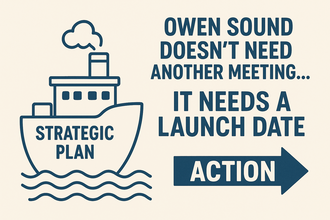-
Hootsuite: Cancel your contract with ICEHootsuite — a social media management company that profits from tools designed to track, amplify, and analyze online interactions — is now putting those tools in the hands of ICE. The Canadian-founded tech company is currently under contract with ICE — an agency synonymous with detention, deportation, family separation, and deaths in custody. Hootsuite’s CEO claims the deal doesn’t involve direct surveillance, but the same analytics and social-listening tools used by brands to track conversations and public opinion can also be used to map patterns, communities, and public response — tools critics warn can be repurposed for enforcement and profiling. Strip away the corporate language and it’s simple: Hootsuite is helping ICE do its job. Hootsuite knows exactly why people are furious — because they’ve been here before. In 2020, the company cancelled a similar ICE contract after employees and the public pushed back hard, openly acknowledging that working with an agency driving detention and deportation of immigrants conflicted with its values. But now leadership claims this contract is “different.” The backlash has been immediate and loud. Current employees have also been resigning in protest. Former staff, customers, and civil-rights advocates have strongly protested, with hundreds demonstrating dissent outside Hootsuite’s Vancouver headquarters just last week. The message is clear: partnering with ICE is a choice — and Hootsuite is choosing profit over people. We call on Hootsuite CEO Irina Novoselsky to immediately end all contracts with ICE, DHS, CBP, and any related immigration enforcement agencies, and to publicly commit to never doing business with ICE again. If you believe tech companies should not help power detention and deportation, sign this petition now.6,777 of 7,000 SignaturesCreated by Kayla Zander-Nuñez
-
Canada’s Peace PetitionConflict around the world is escalating, and people are looking for real alternatives to violence. The International Peace Charter offers a principled path forward - rooted in dialogue, reconciliation, justice, and human development. When we come together, we can show our government that Canadians want peace to be at the centre of our national leadership. Join in signing the Canadian House of Commons petition: Petition e-6869 - Petitions6 of 100 SignaturesCreated by Laurent Sevigny
-
Build Supportive Affordable Housing at 1499 and 1501 Queen WestThe City of Toronto, and Canada as a whole, is in an unprecedented affordable housing crisis. Many struggle to find safe and stable housing in Toronto and Parkdale Activity-Recreation Centre (PARC) wants to be proactive in housing our at-risk community members and has proposed to build 140 new affordable supportive homes at 1499 and 1501 Queen St. West. Right now, PARC is facing opposition from a group of neighbours in Parkdale who want to reject our proposed development. PARC has been part of the Parkdale community for more than four decades. We already operate supportive housing at 1499 Queen and nearby buildings. We want to replace an aging building with safe, private self-contained units, indoor programming space, and onsite supports to reduce crowding on the sidewalk, and create more dignity, safety, and stability for our community members and neighbours alike. Supportive housing does not negatively impact communities. Instead, it can enhance community stability and reduce crime rates by providing stable housing environments for vulnerable individuals. This proposal will provide stable and supportive homes to those who need long-term housing. Supportive housing is one of the solutions to homelessness, and offers stability, on-site resources and ensures the safety of tenants and the neighborhood they are in. It combined affordable rent with supports, allowing tenants to heal, recover and contribute to their communities. What is PARC’s proposal? PARC is proposing to build a total of 140 units divided between 1499 and 1501 buildings, as well as enhancing a non-residential portion of the building to improve our community spaces. These new buildings will feature self-contained units with kitchens and bathrooms, laundry facilities, and carefully designed common spaces for tenants to enjoy. There will be on-site programming and support focused on housing stabilization, community integration, and wellness. This proposal is not only about housing. It is about building a stronger Parkdale that lives its values: a neighbourhood that doesn’t turn its back on people in crisis but instead helps them rebuild their lives. Join us in supporting the proposed supportive housing development at 1499 and 1501 Queen St. West. Sign this petition and stand up for a more compassionate and equitable Toronto.1,872 of 2,000 SignaturesCreated by Parkdale Activity-Recreation Centre — PARC

-
Make $40k Tax FreeThe Basic Personal Amount in the Canadian tax code needs to be adjusted for inflation. Too many Canadians are living on the brink of survival, and this one simple step would make a huge difference to the poorest working Canadians. If anyone working a full-time minimum wage job could make their first $40,000 tax free, we would all be better off. Studies all over the world show that putting cash directly in the hands of the poorest folks directly benefits the economy as a whole. This is because folks that don’t have much money tend to spend most of what they have, spurring the economy from the bottom up.16 of 100 SignaturesCreated by Clara Shandler
-
Say NO to AI Data Centres in Ontario!There are major ramifications that Premier Ford and Energy Minister Stephen Lecce should know with respect to AI data centres: 1. The major beneficiary of building new AI data centers in Ontario are American companies. Most notably, a single American company: NVIDIA. AI data centers are, essentially, warehouses for Graphics Processing Units, or GPUs. The GPU market is widely understood as a de facto monopoly, with NVIDIA controlling more than 90% of the sales of GPUs (Yahoo Finance, 2025). NVIDIA -- an American company with close ties to the Trump administration (Rapoza, 2025) -- benefits first and foremost from the sale. That is, the primary beneficiary of such a deal is an American company, not an Ontarian or even a Canadian one. 2. Rising electricity and water bills for residents and businesses: Paying higher water and electricity bills will make life more unaffordable for millions of residents and businesses across Ontario. In the U.S., new data centres have already notably increased electricity bills in many cities and small towns. 3. AI data centers contribute to massive increases in GHG emissions, particularly from fossil fuels. 4. AI data centres require massive amounts of water and electricity (particularly from fossil fuels and nuclear), negatively impacting the environment. For instance, “across the globe, Microsoft’s 300 data centres consume more than 125 million litres of water per facility each year. That’s the equivalent of 15,000 Olympic size swimming pools filled with water at each data centre.” Moreover, “by 2030–2035, data centers could account for 20% of global electricity use, putting an immense strain on power grids.” It is crucial to respect nature. There is no economy without clean air, clean water, and a healthy ecosystem. Humans cannot survive without a healthy environment. In other words, we cannot prioritize short-term economic growth over the environment. As stated by Golestan (Sally) Radwan, the Chief Digital Officer of the United Nations Environment Programme (UNEP), “Governments are racing to develop national AI strategies but rarely do they take the environment and sustainability into account. The lack of environmental guardrails is no less dangerous than the lack of other AI-related safeguards.” 5. Local, marginalized communities face disproportionate costs and health impacts: In South Memphis, an overwhelmingly Black neighbourhood has seen a sharp rise in asthma attacks and other respiratory problems since xAI’s data centre began operating there in June 2024. xAI is now facing legal action by the NAACP over air pollution. 6. Excessive E-waste and mineral extraction: Data centres produce large amounts of electronic waste, which often contains hazardous substances like mercury and lead. To explain, “the short lifespan of GPUs and other HPC components results in a growing problem of electronic waste, as obsolete or damaged hardware is frequently discarded. Manufacturing these components requires the extraction of rare earth minerals, a process that depletes natural resources and contributes to environmental degradation.” 7. Lack of transparency: There is a lack of transparency and accountability of AI data centres. To tackle this, there needs to be more opportunities for public engagement and real consultation with climate groups, human rights organizations, and local communities. Throughout the whole process, Indigenous communities must be a partner in the decision-making process and treaty rights must be respected at all times. 8. Uncertainty in the business model of AI data centres: Many data centres have yet to prove that they have a viable business model. Currently, most generative AI services are available for free and it is uncertain whether AI-users would be willing to pay for these services if there was a charge. “The scale of the investment is sparking concerns about a bubble and the potential for a pop that could bring the stock market crashing down from record heights…The money spent this year on AI infrastructure and software has contributed more to GDP growth than consumer spending, according to Renaissance Macro Research's reading of Bureau of Economic Analysis data.” 9. Minimal economic gains for the local community and few new jobs: AI data centres can be expected to create only a handful employment opportunities (sometimes just 10-100 jobs per facility), spurring minimal long-term economic gains to local residents. Many operations jobs for running AI data centres can be done remotely as well, employing workers that are not local, even overseas. We are opposed to economic growth that is not distributed equally and make wealthy tech investors and business owners even wealthier.159 of 200 SignaturesCreated by ClimateFast Action
-
Join the Owen Sound Ragin' Nanny's (OSRN) - Dignity, purpose, and a dash of humour!We’ve lived in Owen Sound a long time—through good times and bad. COVID hit us hard, and we’re recovering slower than our neighbours. We asked why: we pay some of the highest taxes in Ontario, have some of the lowest household incomes, and the City spends big on HR—yet we’re not seeing progress on the basics: housing with primary care, real mental-health help, a cleaner, more welcoming downtown, and smart economic growth. If we’re hiring people with the right skills, what’s blocking results? When we worked for pay, we performed—or we got a review. It’s time for a public performance check-up and a simple report card. With an election year ahead, there’s still time to meet the next leaders, set clear goals, and expect delivery. Dignity, purpose, a dash of humour—let’s get Owen Sound moving again.1 of 100 SignaturesCreated by Pat Kelly

-
Get On The Omnibus — A new Vision for Owen Sound. #GetOnTheOmnibusWhy this matters Walk downtown on a cold evening and you can feel it: too many dark windows, too few places to warm up, no public washrooms, not enough signs that someone’s looking out for all of us. Even City Hall—beautiful as it is—doesn’t always feel like the welcoming front porch of our town. With winter coming, we don’t need speeches. We need basics you can see. That’s what the Omnibus is about. It’s a simple way to start doing the obvious things together, right away: open public washrooms 24/7, keep 2nd Avenue and our downtown streets and back alleys safe, clean and well-lit, help move attainable homes from planning to move-in-ready, and make it easier to find a doctor and wraparound primary care. Nothing fancy—just the small, steady work that makes a place feel like home. It also means no more “someone will look into it.” By establishing a Community-led Vision 2050 Leadership Team - with shared leadership and decisionmaking, each priority will have a team to take the lead— in addtion to the Mayor, the co-lead may be an expert partner from the Ontario Health Team, Indigenous Health Care Services, SOS, Four Counties Labour Planning Board, Bruce Power, Public Health, YMCA, United Way, O’Share, or another local group. Priority teams will report every 3–4 months about what worked, what didn't, what changed and what’s next. If something slips, we say so and fix it. You’ll be able to see the whole thing on a simple public report-card page, and you can add ideas or offer a hand. And when your tax bill arrives, you’ll see a plain-language snapshot: what you paid, what you got, and the difference it made— including photos and written in plain language. As for our “unfixable” tough problems—they can be fixed. Not every time. Not for everyone. But more often than not. Because most of us know someone, or have been that someone, who’s had a rough patch—lost a job, savings, family, or a loved one. Too many of them are just kids who grew up here. When life tilted, the support every kid needs just wasn’t there. A city-plus-community partnership lets us line up care, housing, and day-to-day support so fewer people end up in the ER just to stay warm, and so families, seniors, and small businesses can feel proud of downtown again. This isn’t about being loud. It’s about a city being both kind and practical. Keeping the lights on downtown, keeping the streets clean and welcoming, making it easy to find help, and easier to know our neighbours and watch out for each other. Before the snow flies, let’s get the bus rolling.15 of 100 SignaturesCreated by Pat Kelly

-
Protect Agritourism in BC: Align TNRD Policies with ALR/ALC RegulationsAcross British Columbia, farmers are facing unnecessary barriers because local governments are misclassifying agritourism accommodations. The Agricultural Land Reserve (ALR) and Agricultural Land Commission (ALC) clearly recognize agritourism as a permitted farm use. Yet, in the Thompson‑Nicola Regional District (TNRD), seasonal, off‑grid farm‑stay units are being misclassified as “single family dwellings.” This misclassification threatens the viability of agritourism businesses, undermines provincial policy, and penalizes farms that are operating in good faith under ALR/ALC guidelines. Agritourism is not just about farm stays — it’s about: • Strengthening rural economies. • Supporting local food systems. • Providing authentic educational and cultural experiences. • Building bridges between farms and communities. When local governments undermine agritourism, they undermine the resilience of farming itself. Join Us We urge the TNRD Board to reject punitive measures and instead work with farmers, chambers, and tourism groups to create policies that support agritourism across the region. 👉 Sign this petition to stand with BC farmers and protect the future of agritourism.17 of 100 SignaturesCreated by Kaare Long
-
Doug Ford: Hands Off Our Hospitals and Schools!!!Doug Ford and his Conservative government are attacking two pillars of Ontario that impact every single one of us: healthcare and education. • Our healthcare system is being dismantled and privatized, putting profits before patients. This affects all of us — from our aging parents who need long-term care, to our children who need access to doctors, nurses, and emergency services. • Our education system is being cut and underfunded. Every child deserves the right to learn in a classroom with proper supports. Instead, Ford is blaming school boards for “overspending” while his government refuses to provide the funding students actually need. The federal government has done what it can, but healthcare and education are provincial responsibilities. The time is now to stop Doug Ford from privatizing the very systems that were created to give everyone — no matter their income — the chance to be healthy and to learn. We demand that Doug Ford and the Ontario Conservatives: 1. Stop healthcare privatization and invest in publicly funded, publicly delivered healthcare. 2. Fully fund Ontario’s public education system so that students, teachers, and families get the supports they need. This is about our future. Our healthcare and our schools are not for sale.9 of 100 SignaturesCreated by Kate Campbell
-
Stop Planning. Start Doing. Launch Owen Sound’s Vision 2050 This Fall.For months, the community has contributed ideas, surveys, and feedback to shape Vision 2050. The plan outlines a bold vision for housing, jobs, healthcare, safety, culture, and sustainability. But residents are growing frustrated with delays, reports, and endless meetings. It’s time to act. We believe Owen Sound can and must: • Finalize the plan at the Sept. 24, 2025 full-day working session with council, staff, and community leaders. • Approve the plan at the Oct. 6, 2025 Council meeting, and mandate a new Owen Sound Community Strategic Leadership Action Team to oversee its rollout. • Launch and communicate Vision 2050 at the Oct. 27, 2025 Council meeting, with a clear roadmap, evaluation plan, and public accountability. This three-step path is achievable, because the work is already done: the draft plan is strong, consultations are complete, and Owen Sound has the partners and expertise to succeed. What’s missing is urgency. As Juha Kaakinen, architect of Finland’s housing strategy, reminded us: “You can’t KPI your way out of a crisis. Sometimes you just have to give a damn.” We urge Owen Sound City Council: Stop the hamster wheel. Stop planning. Start doing. Launch Vision 2050 this fall.3 of 100 SignaturesCreated by Pat Kelly

-
Tell the Canadian Government: Stop Funding Companies Supporting Trump’s Human Rights AbusesGardaWorld — a Canadian-based “private security company” — has million-dollar contracts to execute Trump's racist and inhumane immigration regime, which kidnaps people, tears families apart, and denies people due process. This includes staffing the infamous ICE (U.S. Immigration and Customs Enforcement) facility "Alligator Alcatraz", which has been described as an "oversized kennel" where people are held without cause, don't see sunlight, and are denied basic rights. The Canadian government, meanwhile, is also quietly awarding federal contracts to GardaWorld — and has refused to commit to ending those contracts despite knowing the company’s role in these abuses. The Code of Ethics of GardaWorld states that the company: "GardaWorld fully supports the principles enshrined in the United Nations’ Universal Declaration of Human Rights." And yet: • ICE and the U.S. government are currently being sued for a policy which allows ICE agents to arrest people for showing up to court and prevent them from pursuing their immigration cases • Reports from more than two dozen facilities across 16 states from 2017 to 2019, found "negligent" medical care (including mental health care), "unsafe and filthy" conditions, racist abuse of detainees, inappropriate pepper-spraying of mentally ill detainees and other problems that, in some cases, contributed to detainee deaths. And reports from 2017-2021 show the same patterns. • ICE detention lacks basic due process protections found in criminal detention • ICE and immigration detention are being used to deter use of First Amendment-protected free speech This is Maple-washing at its worst. A company using its Canadian identity and reputation to legitimize its work while contributing to a brutal system of detention and deportation. And yet, the Canadian government continues doing business with GardaWorld. That's OUR money the Canadian government is using through the public purse to fund and legitimize these abuses. Canada must take a stand. No more contracts. No more complicity. Sign the petition now to demand the Canadian Government end contracts with GardaWorld.8,142 of 9,000 SignaturesCreated by Leslie Anne St. Amour
-
Stop the Meaford Pumped Storage ProjectThis shamelessly greenwashed environmental and fiscal misadventure is an absolutely needless waste of taxpayer dollars when a far less costly and environmentally sustainable means of providing a more efficient and upgradable electrical storage facility can be done faster with a battery park on Saugeen/Ojibway land beside the Bruce Nuclear Power Plant in Tiverton Ontario. Having to run a new high voltage transmission corridor from Bruce Nuclear Power plant to run pumps in Meaford is a flagrant abuse of funds and the environment when a battery park near the power source can be built and service our struggling electrical grid far sooner and for a fraction of the cost.5 of 100 SignaturesCreated by patrick ellard

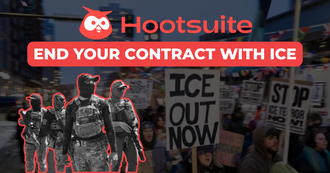.png)

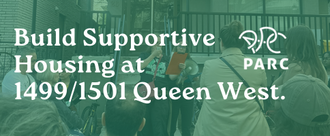.png)

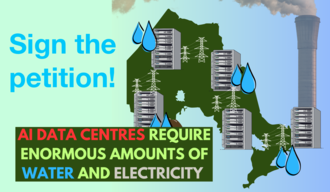
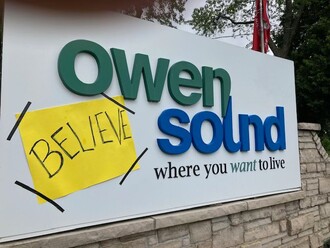
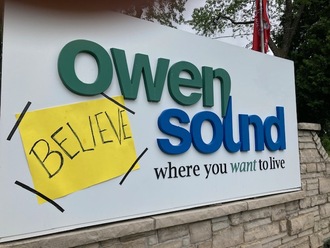
.png)
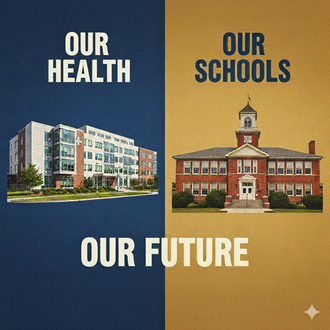.png)
